
by Joe Reid
Journey to the Far Side of the Sun, also known as Doppelgänger in England, is a British science fiction film directed by Robert Parrish and produced by marionette/miniature wizards Gerry and Sylvia Anderson (Stingray, Thunderbirds, Fireball XL5, Supercar, etc.).
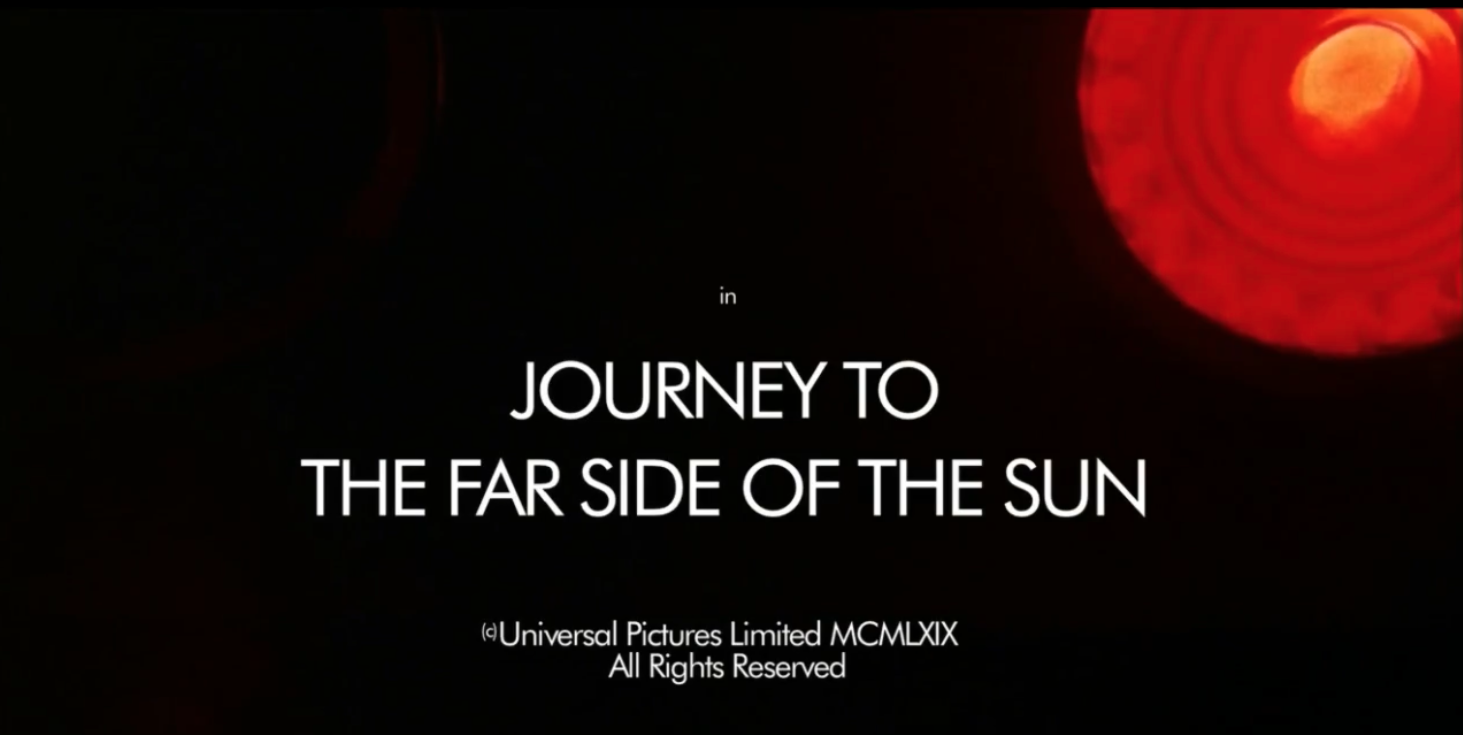
Dig that 2001 type
As a movie, it is both visually appealing and tonally complex, with layered characterizations from its cast. The film gets off to a decent start, featuring beautifully realized sets and model effects, as well as intriguing characters with backstories I wanted to know more about. It sets up an epic quest that seems exciting and full of potential. Sadly, by the end of the film, everything (and I do mean everything) falls apart, leaving me feeling cheated.
The Beginning: A Futuristic Start
The movie opens quietly at Eurosec headquarters (the European Space Exploration Council). Two men enter a guarded, futuristic, secure complex to review some documents. To access the document room, an X-ray scan is performed, displaying the men’s bones in motion and detecting a metal pen that triggers an alarm. From the start, the film showcases its advanced technology.
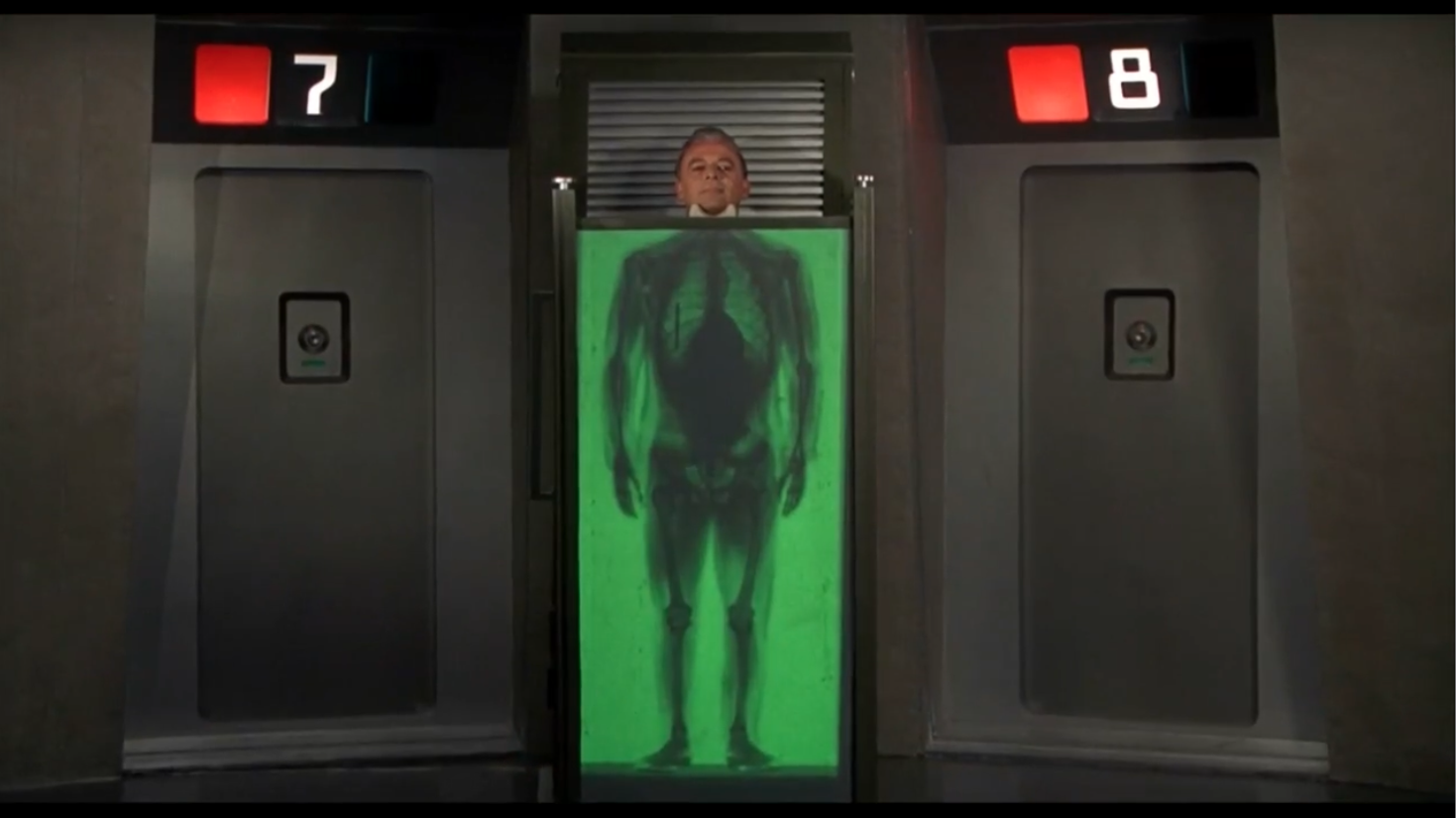
The Exciting Mission
The discovery of the century is at hand: scientists have determined that on the far side of the Sun lies another planet, identical in size to Earth (stop me if you've heard this one before.) Jason Webb, the Eurosec director (played by Patrick Wymark), collaborates with other nations to finance a manned mission to this planet. American astronaut Colonel Glenn Ross (Roy Thinnes—"David Vincent" from The Invaders) is selected for the mission, accompanied by astrophysicist Dr. John Kane (Ian Hendry).
The Beautiful People
Ross arrives at Eurosec with his beautiful but emotionally detached wife, Sharon (played by Lynn Loring). It quickly becomes evident that Glenn and Sharon’s marriage is in serious trouble, and they are barely holding it together as a couple. The other prominent female character, Lisa Hartmann (Loni von Friedl), is a strikingly beautiful woman whose role in the plot is never clearly defined, making her presence feel more ornamental than essential to the story.

The Creative Technology
As the mission preparation begins, the audience is treated to exquisitely designed rocket ships and futuristic sets. Even the cars and homes the characters live in reflect a near-future aesthetic. This is where the movie truly excels—transporting viewers from the mundane to a world of speculative technology. While the spaceships are clearly models, the craftsmanship is exceptional, maintaining credulity far better than the poorly constructed props often seen in other films of our era. Like some of the films from the Orient, for example.


The Tragic and Confusing Journey
The journey to the new planet is uneventful, filled with slow, ponderous shots of the spacecraft moving through space. Soon, Ross and Kane arrive at their destination and face the critical decision: should they land on the planet? Ross determines that the Earth-like planet has a breathable atmosphere and abundant plant life but sees no signs of intelligent inhabitants. They choose to land. Detaching their landing module from their main ship, they then end up crash landing on the new planet. As they complete their fiery collision with the new world, Ross is thrown clear of the ship. Despite his injuries, he manages to pull Kane, who is gravely wounded, from the burning ship before it explodes.

It is nighttime where they impact, and a strange light appears in the sky, scanning the crash site. A humanoid figure descends from an aircraft and Ross, terrified, attempts to fight it. To his shock, the figure turns out to be human, and subdues Ross.
The Ridiculous Truth
The next scene reveals Ross and Kane in Eurosec’s infirmary, under the watchful eye of a furious Jason Webb. As Ross recovers, he is interrogated by Webb and other Eurosec staff, including Lisa Hartmann, as they demand to know why he turned around and returned to Earth. Ross adamantly insists that they had not turned back and instead had landed on the new planet.
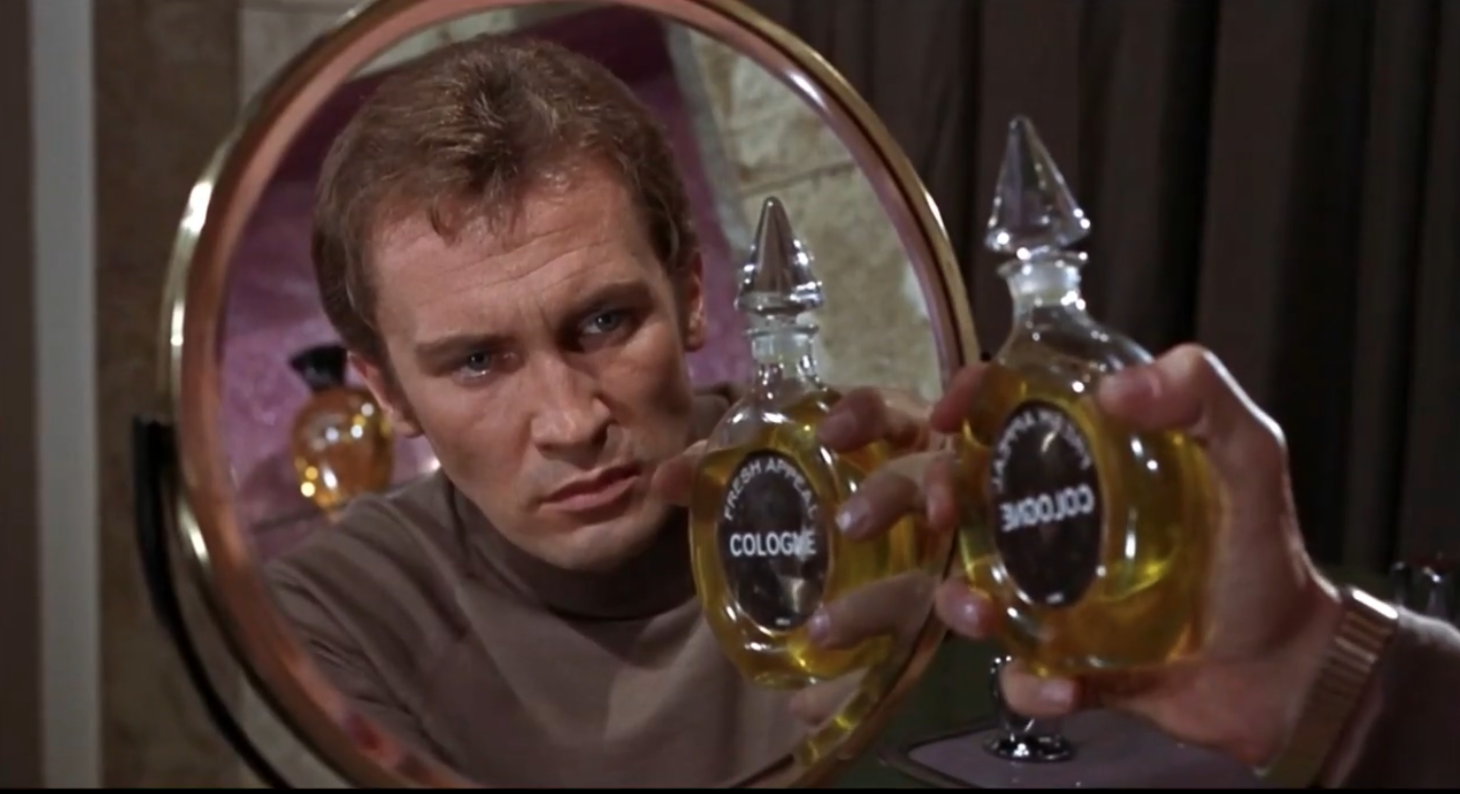
Alone due to Kane’s critical condition, Ross becomes increasingly frustrated. Upon returning home, he argues with Sharon, accusing her of reversing the layout of their furniture and even noticing that labels on her perfume bottles are printed backward. This fight leads to the collapse of their marriage but provideds Ross with a startling revelation: he is not on Earth but on the other planet, a mirror version of his world.
The Overblown Ending
Ross and the Eurosec team realize the truth: he is trapped on a doppelgänger Earth, where everything is reversed. Plans are made to send Ross back to his own Earth. He boards the alien lander (the Doppelgänger) and docks with the main spacecraft still in orbit. However, due to the mirrored nature of the ship, a systems failure occurs, causing the craft to lose power. Unable to escape, the ship and lander plummet to the surface, crash-landing directly on Eurosec and destroying the entire base in a massive explosion.
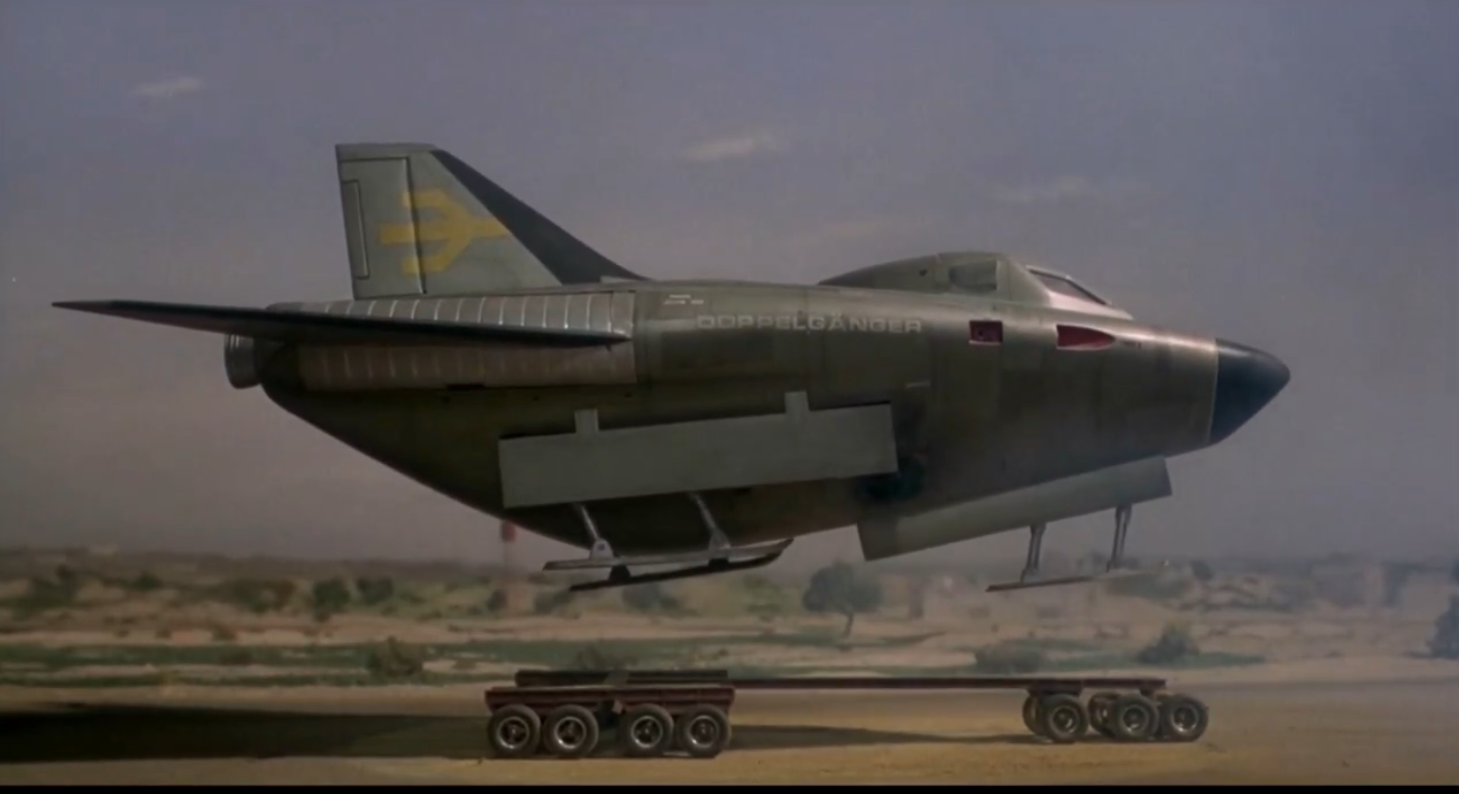
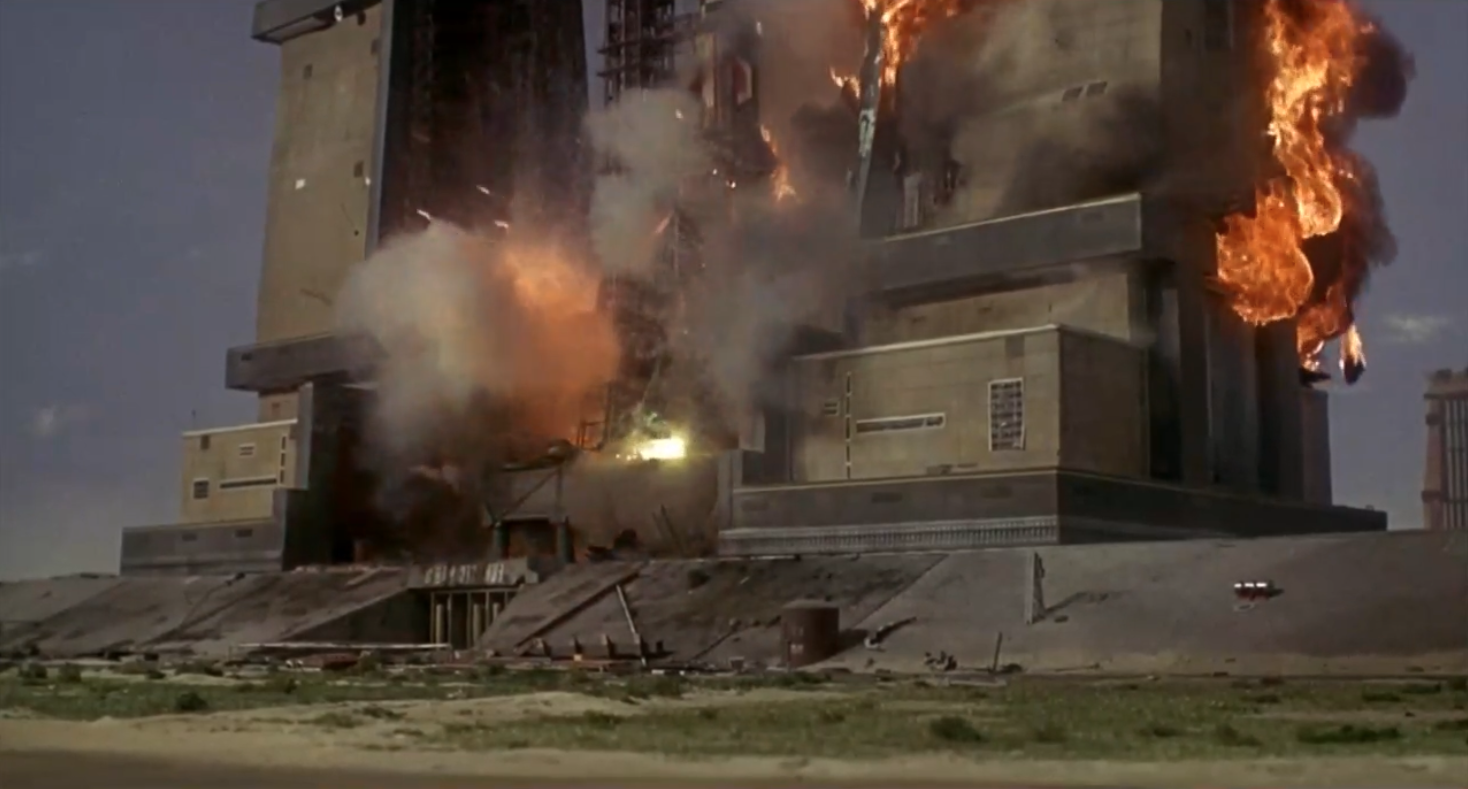
The film ends with a haunting scene: an elderly Jason Webb, crippled and defeated, reflecting on the catastrophic loss. Alone in a wheelchair, he gazes at his reflection in a mirrored window before tragically crashing through it, marking his demise.

Final Thoughts
This movie started so well, only to end so poorly. It had so much going for it: great looking sets and technology, attractive people (albeit lacking any compelling backstory), and an interesting adventure for them to embark on. For the counter-Earth to turn out to be a mirror copy just felt lazy. So many simple things had to be ignored for the story to go as long as it did. The astronauts not finding any life from orbit was the dumbest thing of all…until that was followed up by the two explosive crashes by a trained astronaut. The fact that everyone died made the story a waste of time and a missed opportunity. A real shame. I give this Doppelänger two of five stars.
[New to the Journey? Read this for a brief introduction!]




I have to say, I felt much the same way watching this. It had a lot of potential and the model work of the Andersons is great. But it didn't seem to know what to do with concept and just sort of blew things up when they ran out of Time.
Excellent review.
Old Jason Webb looks a lot like Commodore Matt Decker (of Doomsday Machine)
A remarkably stupid film, as I've thought since first seeing it when it was newer.